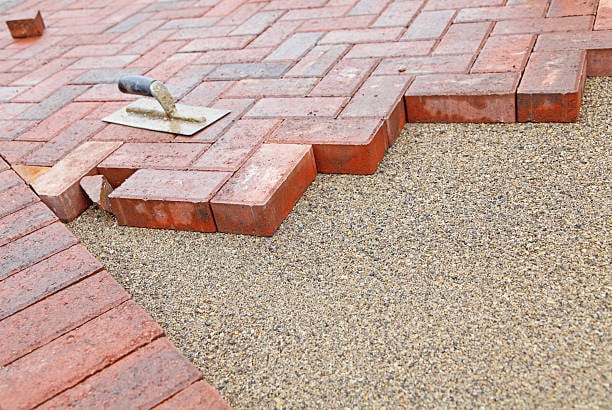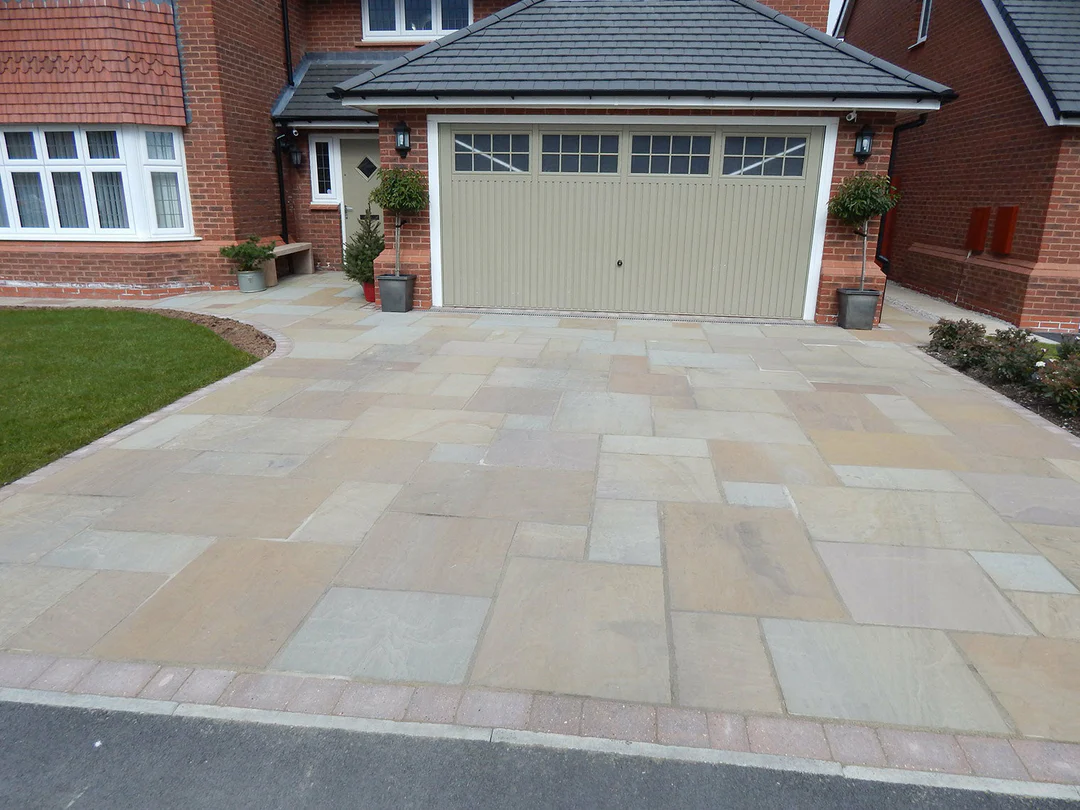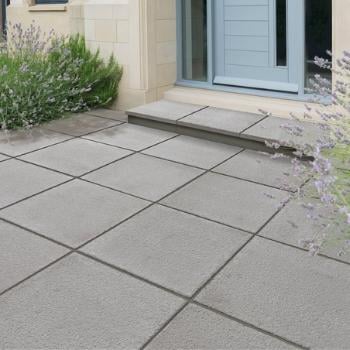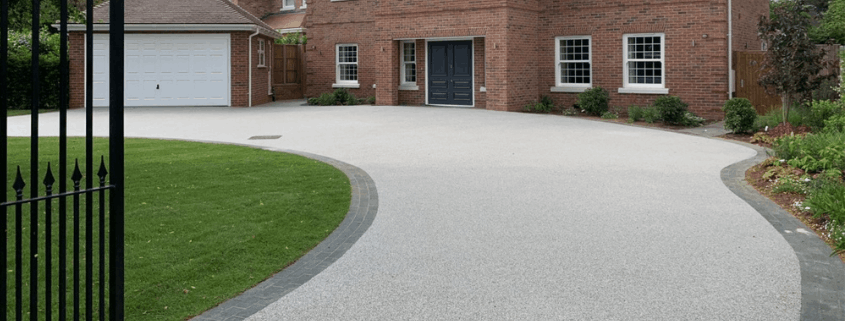More Details
Block Paving Driveways
Over the past 20 years, block paving has become the UK’s most popular choice for driveway surfacing—and for good reason.
With a vast range of styles, patterns, and colors available, block paving offers something to suit any property and its surroundings.
One of the standout advantages of block paving is its easy maintenance. If a block becomes stained or cracked, it can be replaced individually without disrupting the entire surface.
To minimize weed growth, you can use weed-resistant jointing sand or seal the paving, which also helps extend the lifespan of your driveway. Systems like Marshalls Driveways use a resin joining compound that fully seals joints, preventing weed growth entirely.
However, unless you opt for permeable block paving, drainage installation is typically required. This often involves linear drains and soakaways, adding to the overall cost of installation.

Paving Slabs
Paving slabs are another option for your driveway, but not all types are suitable for vehicular traffic, so it’s important to choose wisely. That said, there is a wide selection of paving slabs in different types and colors that work well for driveways.
Replacing paving slabs can be more complex and expensive than block paving, as each slab needs to be individually set on a concrete bed, whereas block paving is installed on a compacted layer of sharp sand.
As with block paving, it's essential to install proper drainage to meet SUDS regulations.
Porcelain has gained popularity for garden patios in recent years, and this trend is now extending to driveways. Porcelain driveways offer a modern, sleek look and require minimal maintenance, making them a popular choice. If you opt for porcelain, make sure to choose tiles that are 30mm thick, as opposed to the standard 20mm tiles used for patios.

Concrete Driveway
Concrete is another affordable and quick-to-install option for driveway surfacing. However, it does have some drawbacks. Concrete can be prone to staining, particularly from oil, which is notoriously difficult to remove. Cracking is another concern; if not installed correctly, the surface may develop cracks that worsen over time. Unlike block paving, repairing damaged sections of a concrete driveway is challenging.
That said, when installed properly, a concrete driveway can last over 30 years, making it a durable and cost-effective choice.
To add character to plain concrete, you can incorporate colored dyes or create decorative patterns using stencils, a technique known as Pattern Imprinted Concrete.

Gravel Driveway
Loose gravel is a highly popular choice for driveway surfacing.
It is quick to install and cost-effective, making it an excellent option for larger driveways, much like tarmac.
Gravel driveways are particularly suited to traditional and countryside properties, but with the wide range of aggregates now available, there’s a style to suit both classic and modern preferences.
A significant advantage of gravel driveways is their full compliance with SUDS (Sustainable Urban Drainage Systems). When laid on a permeable sub-base, they allow water to drain freely, eliminating the need for additional drainage installation and reducing overall costs.
